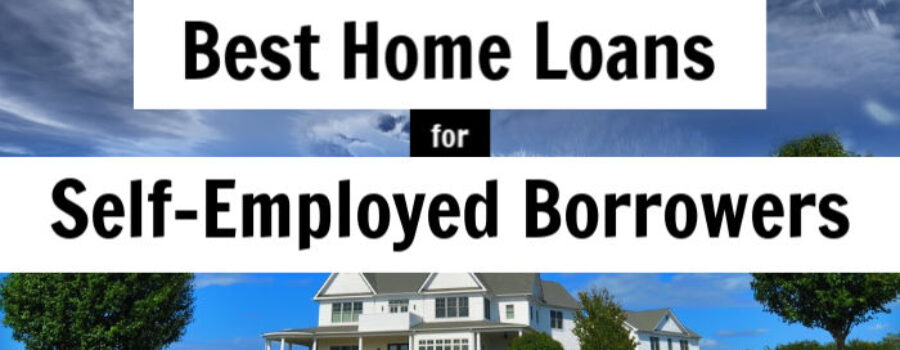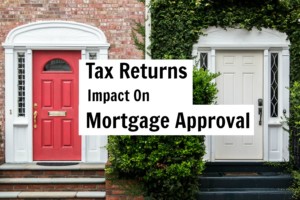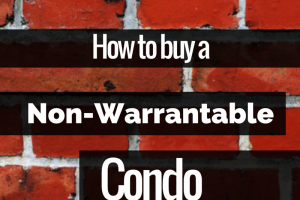Getting approved for a mortgage when you’re a business owner can be tricky, but it shouldn’t be impossible. Here we’ll cover the 4 top home loans for self employed borrowers. Everything you need to know about what lenders are looking for, and how to get approved.
Top 4 Home Loans for Self Employed Borrowers
Let’s start with the most popular.
1. Bank Statement Loan
A bank statement loan is a non-traditional mortgage type where the borrower is approved based on bank deposits, NOT tax returns.
The fact of the matter is: business owners have great CPA’s who help them take advantage of write-offs that make their bottom line with uncle Sam look small on paper.
The only time this is an issue is when looking to get approved for a traditional mortgage. The underwriter takes one look at the tax returns, and it’s clear that based on what is reported to the IRS, the debt-to-income ratio is too high.
This is where a bank statement loan is perfect.
The lender will review 12 months bank statements, and use an average of deposits for an income figure.
Things to keep in mind on a bank statement loan:
- Minimum down payment is 10%
- Minimum credit score is 600
- Available on home purchase, refinance, and cash out refinance
- Available on primary residence, vacation home, and investment property
More on bank statement loans here.
2. Profit and Loss Mortgage
Sometimes the bank statements are too complex for the lender to calculate income. In those cases, a profit and loss mortgage might be a suitable solution.
With a profit and loss mortgage, the borrower would provide a P&L that covers the most recent 12 months. The income is the net income divided by 12.
This is an extremely simplified home loans for self employed borrowers who are looking to show their ability to repay the loan. This is as close to a “stated income” loan that the market has to offer. There are very few lenders who offer this. Contact me to connect you with one.
Things to keep in mind on a profit and loss mortgage:
- P&L is prepared by borrower and validated by an independent licensed/qualified 3rd party
- Will need documentation indicating that the 3rd party reviewer is licensed or qualified (CPA or tax preparer)
- Proof that your business has been in operation for 12 months or greater
- If in business less than 2 years, will need proof of same line of work for 2 years prior to going self employed
- Minimum down payment is 15%
- Minimum credit score is 600
Reach out to see if you qualify for this product.
3. Cash Flow Mortgage
For business owners who are also real estate investors, a cash flow mortgage could be a perfect fit.
With a cash flow mortgage the income is approved based on property cash flow, NOT personal income.
This is for investment properties only.
When looking at a cash flow mortgage it is important to confirm that the fair market rent is sufficient to cover the mortgage, taxes, and association dues (if applicable).
For example: if the mortgage/taxes/insurance/HOA is $1,500/month then the fair market rent must be at least $1,500/month for the property to be eligible.
Fair market rent is determined by appraisal. The lender will order a 1007 rent schedule to calculate fair market rent.
If you’re purchasing the property, the home does not need to be currently tenant occupied.
For refinance loans you’ll need to provide a current lease which will be reviewed as well as 1007 rent schedule to confirm the property at least breaks even.
Things to keep in mind on a cash flow mortgage:
- Minimum credit score is 600
- Investment property only
- Minimum down payment is 20%
- Minimum loan amount is 100K
More on cash flow loans here.
4. Traditional Mortgage – With a non-traditional spin
I have to be very candid and tell you: roughly 50% of the time someone comes to me to get a non-traditional loan, we end up getting it done on a traditional mortgage.
The brutal truth is that a very high percentage of loan officers are lazy and inexperienced.
I’m sorry.
I said it.
You may talk to 5 lenders, and all of them tell you that you don’t qualify for a traditional mortgage because of how your tax returns look.
Or they may tell you that you don’t qualify because a two year average of your income is too low even though the most recent year was strong.
They don’t take the extra 60 seconds that it takes to run your scenario through the automated underwriting system to see if 1 year of returns would be allowed.
They don’t take the extra 5 minutes to get a second pair of eyes on your tax returns to see if any write-offs can be added back in to your bottom line.
The extra effort can go a long way and save a lot of money on rate and costs.
With that said, sometimes… a traditional loan just won’t work.
Which is why I provided 3 other great alternatives (mentioned above in detail).
But I do encourage you to have your scenario looked at by an experienced team before exploring alternative options.
Things to keep in mind on a traditional mortgage:
- Tax returns will be required if you’re self employed
- As low as 500 credit score (FHA)
- As little as 3% down payment on a home purchase (with good credit)
- Traditional (conventional/FHA/VA) will have favorable pricing
- Available on primary residence, second home, and investment property
- Loans for home purchase, refinance, and cash out refinance
In summary
There are several amazing ways to get approved when seeking home loans for self employed borrowers.
- Bank Statement Loan
- Profit and Loss Mortgage
- Cash Flow Mortgage
- Traditional Mortgage
It’s best to consult with an experienced mortgage team in order to determine which option makes the most sense for your specific scenario.
I invite you to reach out.
Get your questions answered.
We have gotten many borrowers all over the country approved for a mortgage even when several lenders said it couldn’t be done.
If we cannot help, I should be able to give you the guidance needed to get approved in the near future.















What questions do you have?